

The United States Agency for International Development (USAID), the Government of Canada, and Conservation International are promoting the Amazon Business Alliance, a new platform aimed at promoting sustainable businesses and facilitating conditions for sustainable investments to grow in the Peruvian Amazon. Percy Summers, Senior Director of Science and Development at Conservation International in Peru, explains further details about this platform.
What does the Amazon Business Alliance entail?
The Amazon Business Alliance is a platform that promotes sustainable investments and businesses that can have positive impacts on society and the environment, channeling loans or non-repayable funds to ensure their viability. There is a real opportunity, but we need to create the means, mechanisms, and incentives to ensure the takeoff of business models focused on biodiversity conservation and adaptation and mitigation to Climate Change, with gender and interculturality approaches as a framework.
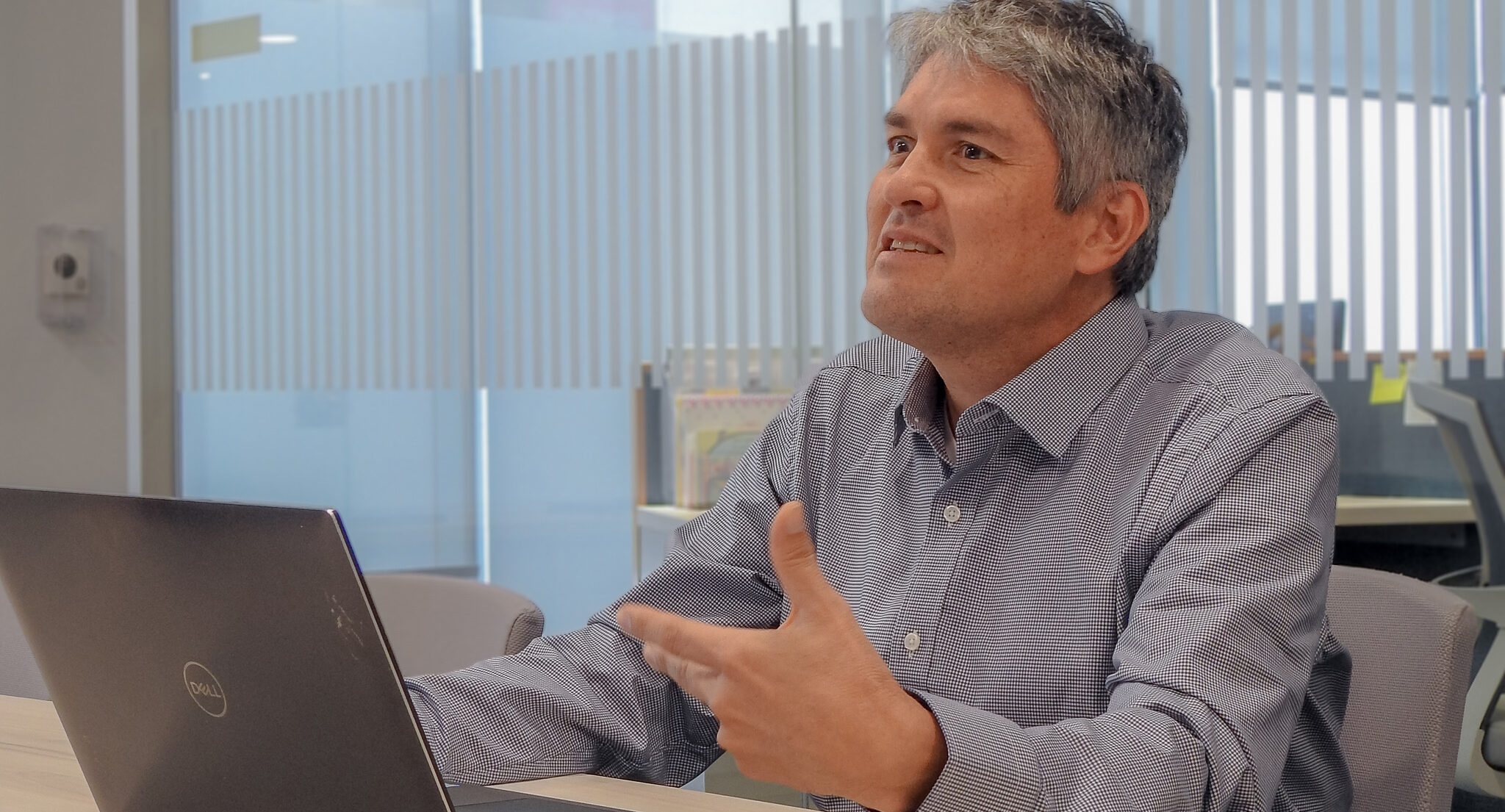
What kind of sustainable businesses will be prioritized?
We aim to work with agricultural areas, agroforestry systems, identifying how these production systems can be more sustainable, with healthier soils that store more carbon. We know that agriculture is the main driver of deforestation in our country, but it can also be an opportunity. Techniques to increase productivity and promote soil-restoring agriculture exist, but incentives are lacking, and that’s what the platform promotes. On the other hand, we want to work with forest areas to promote their management and care: conservation concessions, ecotourism concessions, non-timber forest products, productive forests, or environmental services that can also enter these mechanisms, being opportunities for sustainable business.
What are the challenges for sustainable businesses to grow in the Peruvian Amazon?
I think we need to address the gap between the more local indigenous vision of the territory and the needs of investors, who come from a much faster, more aggressive world in terms of doing business; however, these two worlds don’t always communicate. That’s where a tool like the Alliance can serve as a bridge between them, between the local needs and the opportunities that the market sees in the territories, in the landscapes of these communities.
What financing mechanisms does the Alliance contemplate?
We offer soft and accessible loans to make the business more attractive to investors. Although they typically have a market-equivalent interest rate, they bring other benefits, such as rate reduction based on outcomes; for example, if conservation goals are met, they could receive reduced rates. These incentives are included in the project design to encourage the company, allowing us to further reduce the rate. Additionally, we have non-reimbursable funds, which can be allocated to the company or its partners. If we want to negotiate with local communities, they could receive funds from the Alliance aimed at, for instance, developing capacity for cooperatives producing coffee.
The third mechanism is co-financing from public funds to help achieve the goals of the Alliance and vice versa, with the Alliance funds helping to achieve the environmental goals of local governments, which in turn contribute to national goals. So, we could talk about a triple package where there are non-refundable funds to communities, credits to companies, and public funds that we will leverage to ensure the sustainability of the business.
What are the objectives?
We are focused on moving forward with the first investment pilots of the Amazon Business Alliance, such as the one developed in Alto Mayo, San Martin, where we created a financial sustainability model with a landscape approach; that is, how conservation contributes to the region’s economy. We want this platform to become a tool for communities and investors to access new technologies, financing mechanisms and services. We want the business to grow and become more sustainable, and for that we have to provide not only financial resources, which is important, but also capacities, incentives and financial mechanisms that are more appropriate for small producers and for the Amazonian environment. We are currently working in four regions of the Peruvian Amazon, but the goal is for this platform to reach any Amazon region.
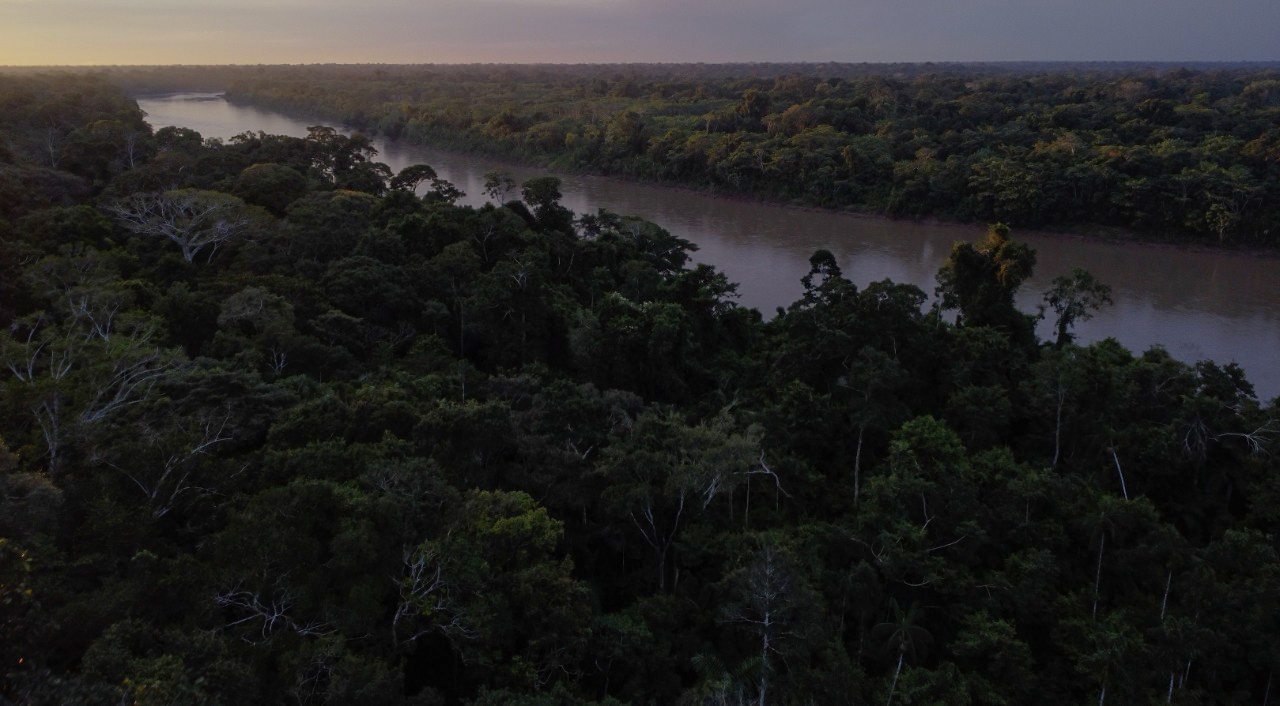
Percy Summers Sarria
D. in Environmental Planning from Virginia Tech Polytechnic Institute, he currently serves as Senior Director of Science and Development for Conservation International.
This article was published on May 27 in Diario Expreso: https://bit.ly/3aEdTC4
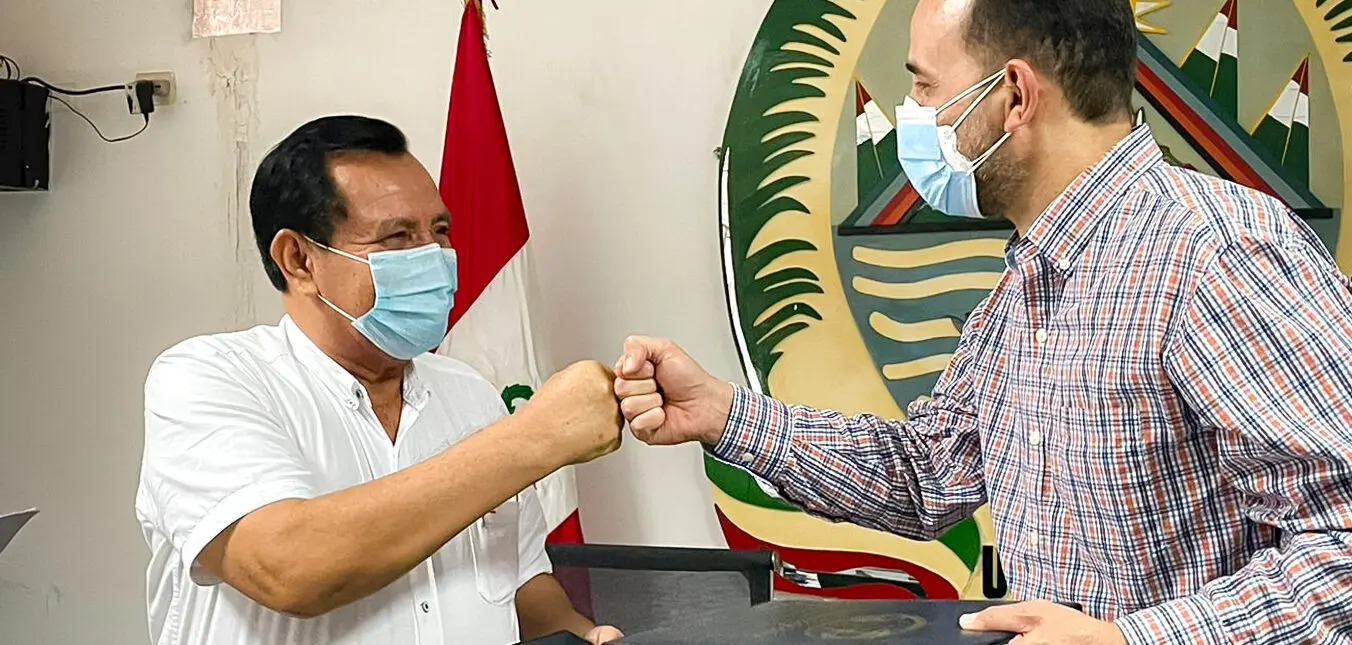
The Ucayali Regional Government (GOREU) and Conservation International Peru (CI Peru) signed a Framework Agreement for Interinstitutional Cooperation, committing to work together to facilitate the development of sustainable businesses contributing to national climate targets and Sustainable Development Goals.
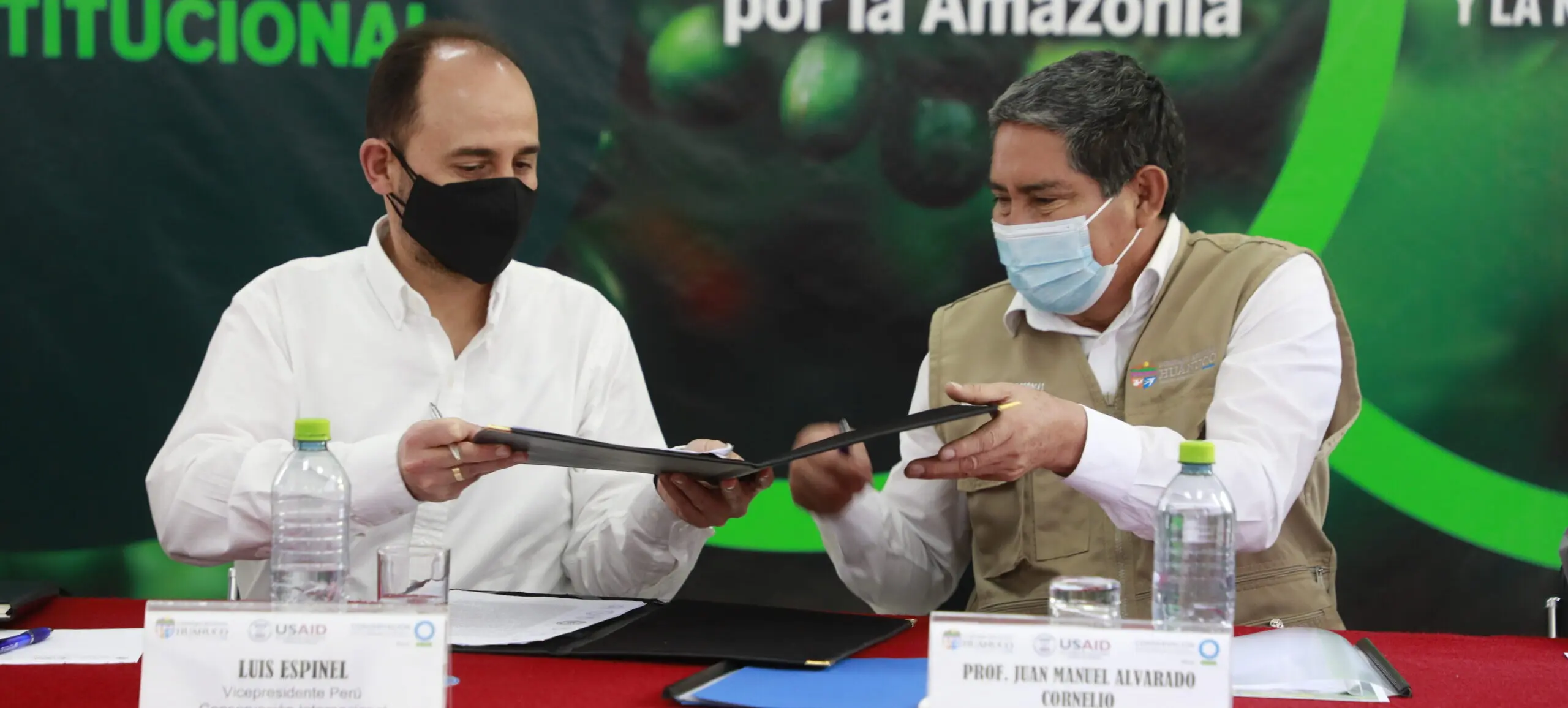
With the aim of promoting and facilitating the development of sustainable businesses that contribute to achieving national climate goals and the Sustainable Development Goals, the Government Regional of Huánuco (GOREHCO) and Conservation International have signed a Framework Cooperation Agreement. They commit to working together to support the sustainable development of the region. The agreement is part of the Amazon Business Alliance, a joint initiative between the United States Agency for International Development (USAID) and Conservation International to promote sustainable businesses in the Peruvian Amazon.
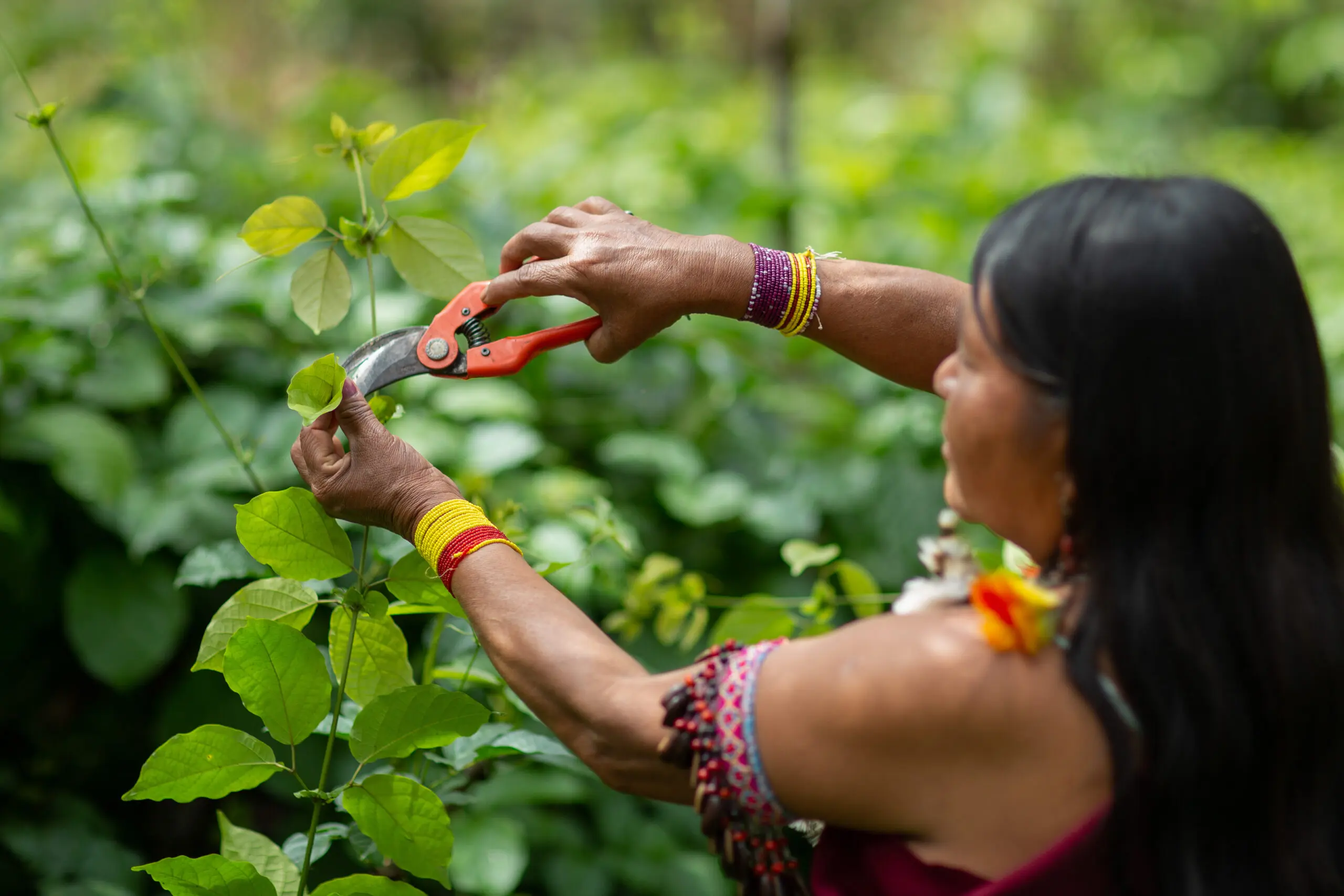
An initiative promoted by USAID, the Government of Canada and Conservation International, will invest in business models focused on biodiversity conservation, adaptation and mitigation of climate change in the Amazon.
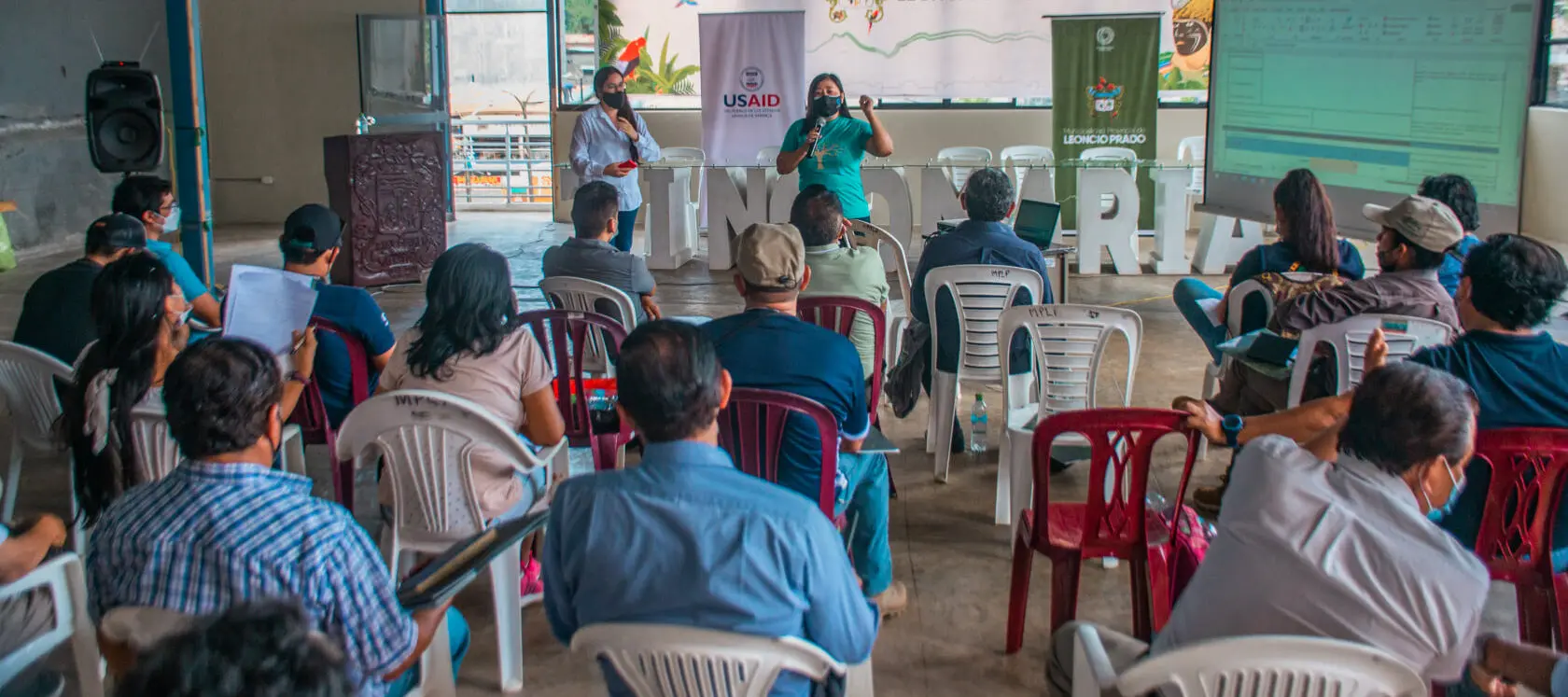
The high potential of the Huánuco region to develop sustainable businesses extends beyond the quality of its cocoa or its Amazonian fruits.

The Ucayali Regional Government (GOREU) and Conservation International Peru (CI Peru) signed a Framework Agreement for Interinstitutional Cooperation, committing to work together to facilitate the development of sustainable businesses contributing to national climate targets and Sustainable Development Goals.

With the aim of promoting and facilitating the development of sustainable businesses that contribute to achieving national climate goals and the Sustainable Development Goals, the Government Regional of Huánuco (GOREHCO) and Conservation International have signed a Framework Cooperation Agreement. They commit to working together to support the sustainable development of the region. The agreement is part of the Amazon Business Alliance, a joint initiative between the United States Agency for International Development (USAID) and Conservation International to promote sustainable businesses in the Peruvian Amazon.

An initiative promoted by USAID, the Government of Canada and Conservation International, will invest in business models focused on biodiversity conservation, adaptation and mitigation of climate change in the Amazon.

The high potential of the Huánuco region to develop sustainable businesses extends beyond the quality of its cocoa or its Amazonian fruits.